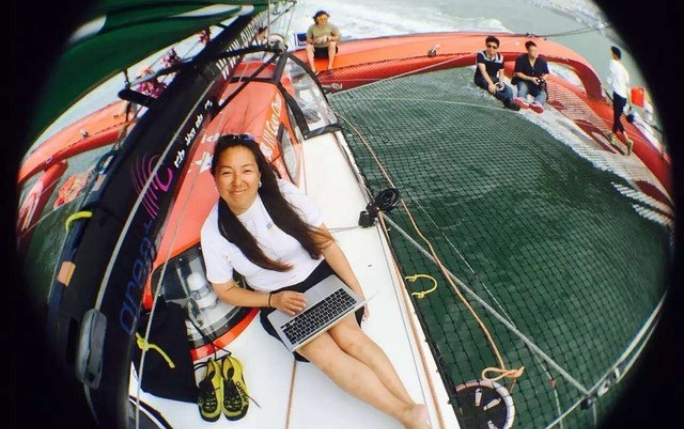What made you want to pursue an MBA focused on football industries management at the University of Liverpool Management School?
Pursuing an MBA in Football Industries Management at Liverpool University was a decision that changed my life. I came across the FIMBA program back in 1998 when I read a piece of news on China Sports Daily. To be honest, I was not a football fan at that time, but I chose this career path because I was extremely interested in TV rights which related to my previous working experience at Chinese Central Television (CCTV). I was interested in the media rights landscape of the English Premier League in particular because I realised that the development of the Premier League could not be separated from media rights. I chose to do my MBA (Football Industries) because I wanted to learn how Sky TV managed to bring changes and understand the football industry from the perspective of the television business.
How did your MBA programme equip you with the necessary skills and knowledge to succeed in the sports industry, particularly within football management?
I was drawn by the opportunity to learn from industry experts, engage in practical projects, and build a network within the football community. This specialized programme offered a unique blend of sports management principles and business acumen, which in the end landed me a job at FIFA which lasted for nearly 2 decades as a FIFA Media Officer started in 2002 and also prepared me for a future career in the sports industry in general.
Could you describe your career journey post-MBA?
My career journey has been brilliant thanks to my education at Liverpool University. I feel especially grateful for my FIMBA professors such as Rogan Taylor and Rory Miller who have shared their networks and experience with us. I am honoured and thrilled to have worked and played some important roles at some prestigious sports organizations such as FIFA, Asian Football Confederation, Volvo Ocean Race and Olympic Games Bidding and Organising.
How did your experiences at these organizations shape your understanding of sports management and communication strategies, especially in the context of international events like the Olympic Games and global competitions such as the FIFA World Cup?
My experiences at these organizations exposed me to how nations use sports events for diplomacy, soft power, and nation branding, the impact of hosting mega sports events on local and national development and how brands leverage events like the FIFA World Cup for global brand performance. They have also helped me engage with diverse audiences through sports and understand how to balance event impact with environmental considerations.
As the Founder of The SportsDAO and Managing Director at China Sport Business Consulting Co., how do you integrate technology and communication into your services?
I set up China Sport Business Consulting Co. Ltd 20 years ago and last year I set up The Sports DAO last year here in the UK. As the Founder of both companies, I realise the challenges the traditional sports business is facing and thus I would like to help companies like mine embrace new technology and innovation and create a strategy that integrates technology with their business vision and marketing communication. There are so many new things that can be explored such as leveraging digital platforms for fan engagement, data analytics, and marketing, using technology to enhance fan experiences during events and beyond.
What inspired you to establish Goals for Children, and how does this local NGO contribute to your mission of promoting sports participation and changing lives in China?
Goals for Children is something dear to my heart. It was in 2008 after the May 12th earthquake in Chengdu, I was inspired by a desire to promote sports participation and change lives, that’s the reason for the establishment of this local NGO. Goals for Children focuses on providing access to sports for underprivileged youth, fostering physical activity, and instilling life skills. In recent years, we also organize Chinese school trips to the UK.
Looking back on your journey from studying football industries management to your current leadership positions, what are the most valuable lessons you've learned along the way?
Being resilient and learning how to overcome challenges in a dynamic industry. Also adaptability, being able to navigate changes and learning new technology and skills of evolving trends. Finally, I have learnt to be grateful. There is a Chinese proverb called 滴水之恩,当涌泉相报. It literally means: A drop of water shall be returned with a burst of spring. I want to do the same.
What has been the biggest achievement in your life?
In fact, my biggest achievements have nothing to do with football. It was my 5-year project management of an offshore sailing team which made two world records, Guo Chuan solo nonstop around the world in 138 days and the Northeast Passage World Record challenge. You can read more here.
How do you see yourself making a meaningful impact on the sports landscape in years to come?
I would like to contribute to the changes in the sports industry, thus I need to equip myself with new skills in new technology and innovation to contribute to industry advancements. As Nelson Mandela once said "Sports have the power to change the world, I believe: sports have the power to change the world with the support of technology and innovation."
